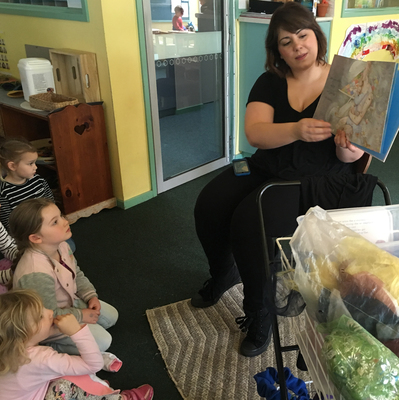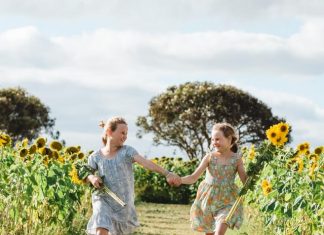By Lainie Connors, One World For Children
Music is a language that crosses all borders of nationality, race and culture.
A soulful melody can arouse feelings of happiness, love and sadness, expressing emotions more eloquently than words ever can, so it’s easy to understand why it is often described as the language of emotion.
As parents we instinctively use music from birth, singing soothing songs to help calm our children, to express love and joy, and to engage and interact. By learning how music can impact child development, improve social skills and benefit children of all ages, we can build on these natural instincts.
Singing, movement activities, playing percussion instruments, dances and dramatic play activities mean that children learn and develop a range of skills for their whole development.
Exposure to carefully planned music may also assist children to cope with sound sensitivities.
Music activities can incorporate opportunities for safe movement experiences and support cognitive skills, such as memory, sequencing, body awareness and understanding concepts.
Music and its relationship to mental and social development has long captured the attention of parents, researchers, even philosophers. Science has shown that music’s effect on the brain is particularly strong, with studies demonstrating an improvement in IQ among students who receive music lessons.
While book reading is absolutely important and is associated with positive outcomes for children, music contributes additional value. Regular informal music-making with very young children may even have benefits above and beyond those of reading, since music contributes to children’s prosocial skills.
The true power of musical play lies in the unique blend of creativity, sound and face-to-face interaction; the learning is strengthened by its basis in a positive, empathic emotional relationship. Simple and fun musical activities can have enormous power in developing numeracy and literacy: try improvising a counting song, or making up new rhymes to familiar tunes.
Being playful with sound is something we’re all born with – indeed, toddlers are humanity’s greatest virtuosos in that regard – yet too many are silenced over the years by the “better seen than heard” brigade.
Music is fun and engaging. The very young and old, the skilled and unskilled, can participate together in ways that not many other activities allow – from active listening through to performing. Music addresses power and skill imbalances by allowing children to lead, and adults to follow. Even the toddler who is not yet ready to sit still for more than two pages of a book, can engage in active musical play.
Dancing or doing action songs together often means face-to-face interaction that we don’t tend to get in shared book reading where joint attention is on the print.
With more and more of our eye contact time going to screens of some kind, perhaps this opportunity for human face-to-face time that comes with joint action songs, singing, and dancing, is crucial to the processes linking music with prosocial development in particular.
One World for Children supports children’s development and encourages the natural affinity children have with music through a daily music program facilitated by The Musical Garden’s Liz Kearney.








